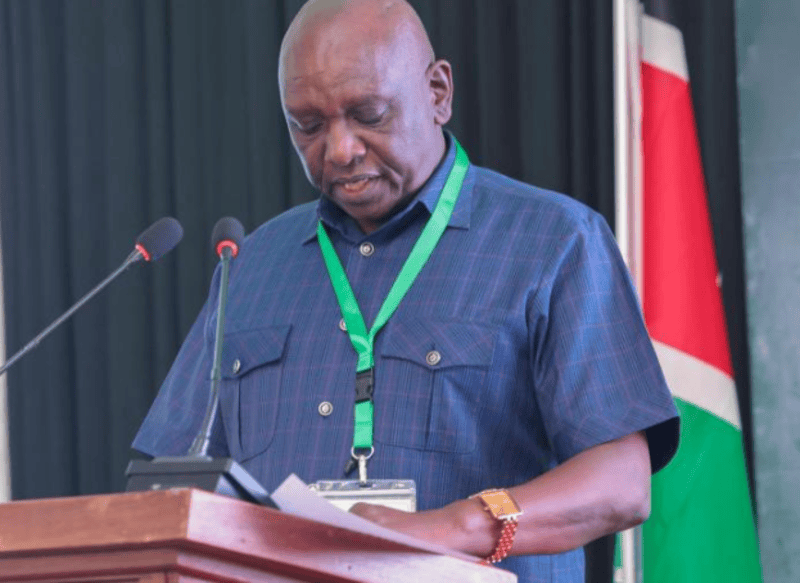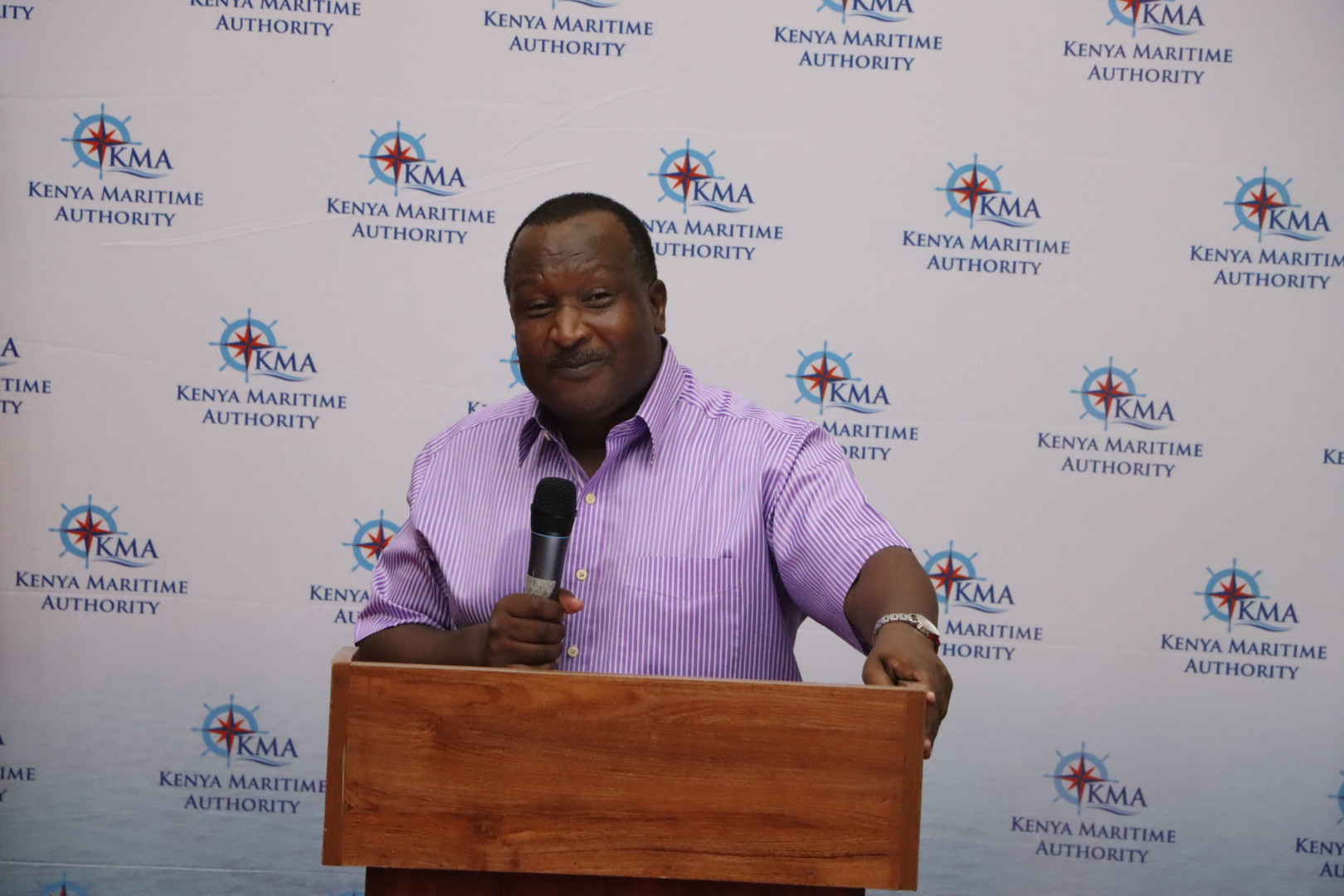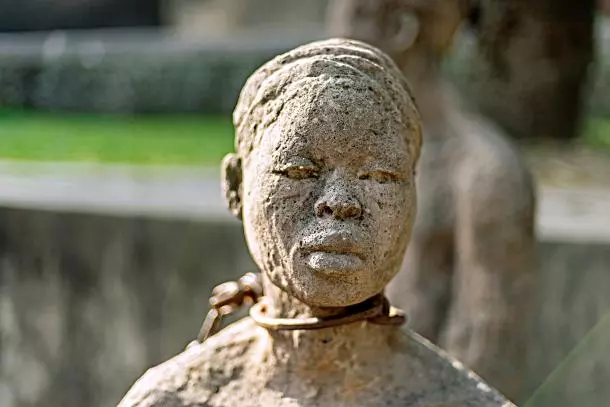'Nobody will be spared': Kindiki warns leaders against negative ethnicity, incitement
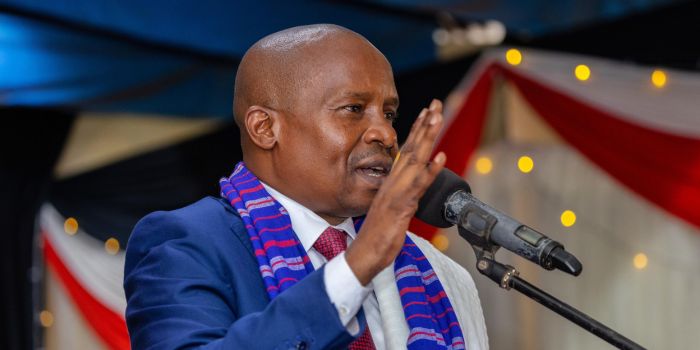
Interior Cabinet Secretary Kithure Kindiki vowed on Monday that his ministry would go after leaders who promote negative ethnicity, saying none would be spared.
Kenya's leaders have been warned against inciting and dividing residents on ethnic lines, the risk being punishment by the government.
Interior Cabinet Secretary Kithure Kindiki vowed on Monday that his ministry would go after leaders who promote negative ethnicity, saying none would be spared.
More To Read
- Senators clash over new county revenue sharing formula
- Mudavadi: Nearly 5,000 Kenyan refugees in Ethiopia seek to return home
- Kenya-Ethiopia border killings spark mass exodus in Marsabit's Dukana Ward
- Kindiki tops list of possible DP Gachagua's successors amid impeachment - TIFA poll
- Kindiki insists evidence shows politicians were involved in anti-govt protests
- Kindiki directs county commissioners to oversee timely completion of State projects
"Some people hide in political parties. They think that because they are in a party that is friendly to the government, they can get away with criminal activities. Nobody will be spared," he said.
"If you try the monkey business of dividing the people of Marsabit and the people of Kenya, we will come for you. Whether you are supporting the government or in the opposition, we will come for you. It doesn't matter."
Speaking in Marsabit Town, the Interior CS emphasised that no leader would ascend to leadership by causing Kenyans to fight each other.
"They must know they have no space to operate in our country. We'll be very firm. It doesn't matter the political persuasion," he noted.
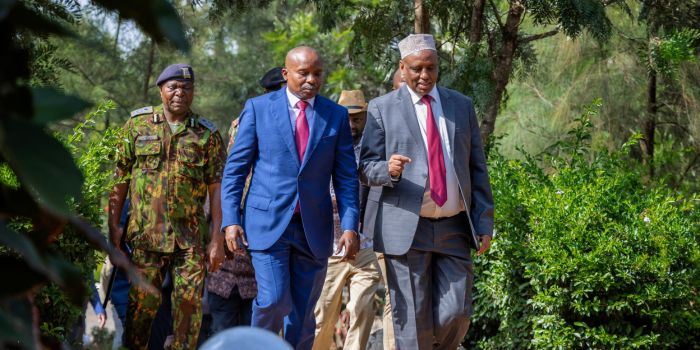 Interior Cabinet Secretary Kithure Kindiki is pictured with Marsabit Governor Mohammud Mohammed Ali in Marsabit Town on June 10, 2024, during the launch of the MTP-IV stakeholder engagement. (Photo: MINA)
Interior Cabinet Secretary Kithure Kindiki is pictured with Marsabit Governor Mohammud Mohammed Ali in Marsabit Town on June 10, 2024, during the launch of the MTP-IV stakeholder engagement. (Photo: MINA)
Kindiki further noted that while discussions around the one man, one vote, one shilling revenue-sharing formula were good, ethnic bias would not be permitted.
Going forward, he said, all parts of Kenya would be entitled to development because of their standing as important components of the republic.
"We cannot encourage a situation where we start discriminating against any part of the country. Lamu, Kisumu, Marsabit, Kericho ... is Kenya," he said. "Every one of our 47 counties is an important component of our republic and is entitled to development."
"The areas that were marginalised in the past, in accordance with our Constitution, are entitled to affirmative action projects to make sure that we make all parts of Kenya equal. The ongoing discussions are good, but we will not allow ethnicity because we are one country. When we talk of regional unity it must extend to the entire country, not at the expense of another part of the country."
Kindiki also said that while Kenya has a robust democracy and freedom, no one is allowed to propagate division on any basis.
"The only freedom that none of us has is the freedom to propagate hatred and division among the people of Kenya on an ethnic, religious, or other basis," he said. "Anybody who thinks they can ascend to leadership through inciting the people of Kenya against fellow citizens of Kenya must know they have no space to operate in our country."
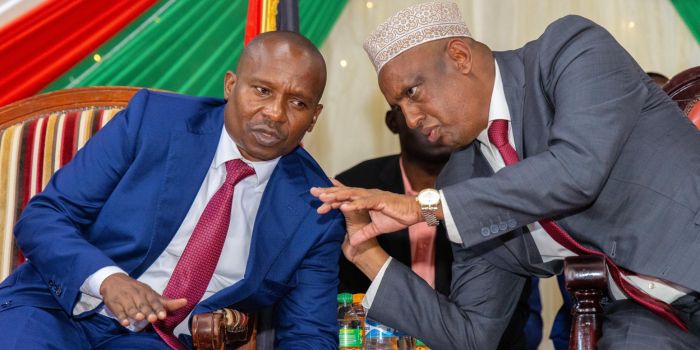 Interior Cabinet Secretary Kithure Kindiki is pictured with Marsabit Governor Mohammud Mohammed Ali in Marsabit Town on June 10, 2024, during the launch of the MTP-IV stakeholder engagement. (Photo: MINA)
Interior Cabinet Secretary Kithure Kindiki is pictured with Marsabit Governor Mohammud Mohammed Ali in Marsabit Town on June 10, 2024, during the launch of the MTP-IV stakeholder engagement. (Photo: MINA)
Kindiki spoke while presiding over the launch of the MTP-IV stakeholder engagement and the breakdown of development programmes and projects planned for Marsabit County between now and 2027.
The government launched the fourth and final segment of the Kenya Vision 2030 Plan, with the Fourth Medium Term Plan (MTP IV) covering the period 2023–2027.
To ensure seamless development planning for Kenya's transformation into a newly industrialising, middle-income country by the year 2030, the MTP IV and the County Integrated Development Plans (CIDPs) of all 47 counties are aligned with the Bottom Up Economic Transformation Agenda (BETA) pursued by President William Ruto's Kenya Kwanza government.
The BETA Plan envisages investments in agriculture, health, housing, businesses and the digital and creative economies to power the economic, political and social pillars of Kenya Vision 2030.
The CS was joined by Kello Harsama, the Principal Secretary for Arid and Semi-Arid Lands (ASALs); Marsabit Governor Mohamed Mohamud Ali, senior national and county government officials, and public representatives.
Top Stories Today

